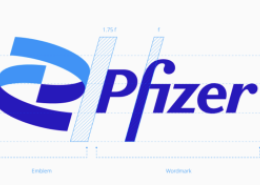Pfizer and Breast Cancer Leaders Join Together to Increase Understanding and Dispel Myths about Metastatic Breast Cancer
Metastatic breast cancer currently affects 150,000-250,000 people in the U.S. and remains an incurable condition1,2 New initiative aims to expand the breast cancer conversation to be more inclusive of metastatic disease
This October, Pfizer Inc. is uniting with leaders in the breast cancer community in a public call-to-action to expand the breast cancer dialogue to include metastatic breast cancer. This comes after a first-of-its-kind survey commissioned by Pfizer revealed that many people know little to nothing about metastatic breast cancer – the most advanced stage of breast cancer (Stage IV), in which cancer has spread beyond the breast to other organs in the body.2,3
“With the public breast cancer conversation focused primarily on early detection and survivorship, metastatic patients often feel misunderstood and isolated from the larger breast cancer community,” said Shirley Mertz, president, Metastatic Breast Cancer Network (mbcn.org). “In fact, we need support and encouragement to face the significant mental demands of a disease for which we will always be in treatment. It will take commitment, attention and resources from multiple parties to change the environment, but the time is now to begin the next phase of the breast cancer movement, where all people living with breast cancer – the early, the advanced and the metastatic – feel equally embraced.”
Together with an external steering committee comprised of patient advocates, healthcare professionals and academic linguists, Pfizer has undertaken the Breast Cancer: A Story Half Told initiative to inspire change based on two complementary studies that have uncovered gaps in the breast cancer conversation within society at large and between patients and physicians in the doctor’s office.3,4
“Metastatic breast cancer is a diagnosis that can come with complicated treatment decisions,” said Freda Lewis-Hall, M.D., chief medical officer at Pfizer. “Furthermore, the emotional toll of metastatic disease can be profound, and can affect how people feel about themselves, communicate with others, and live their lives. Along with our partners, we believe that we can do more to educate about the current gaps in conversations about metastatic breast cancer and help empower those living with the disease to play a more active role in understanding their prognosis and their options for treatment.”
National Breast Cancer Survey Findings
In order to understand some of the external challenges facing metastatic breast cancer patients, a first-of-its-kind survey assessed breast cancer knowledge in 2,090 men and women in the U.S., aged 18 or older, who were representative of the U.S. population across various socioeconomic, geographic, educational and ethnic backgrounds.3
More than 60 percent of respondents said they know little to nothing about metastatic breast cancer. This lack of knowledge about metastatic disease was apparent in additional findings, which revealed the following facts were not well understood:
- FACT: Early diagnosis does not guarantee survival – 72 percent of respondents thought that breast cancer in the advanced stages can be cured as long as it is diagnosed early.3 The reality is that even if diagnosed early, nearly 30 percent of women diagnosed with early breast cancer will progress to metastatic disease.5
- FACT: Breast cancer progression can occur regardless of treatment or preventative measures taken – Half of people surveyed said they believe breast cancer progresses because patients either did not take the right treatment or the right preventative measures, signaling the potential stigmatization of people with metastatic disease.3 In reality, breast cancer can spread quickly and inexplicably, regardless of treatment or preventative measures taken.5
- FACT: Prognosis of advanced disease remains poor and treatment options may be limited – Half of the survey respondents said they believe that a significant number of treatments are available for advanced breast cancer, and 41 percent said they believe that people with advanced breast cancer can live a long time.3 The reality is, while there have been advances in therapy, metastatic breast cancer currently remains incurable.2 The median survival following a metastatic breast cancer diagnosis is just three years.6
Conversations in the Doctor’s Office: Study Findings
This study was conducted to observe the interactions between metastatic breast cancer patients and their community-based oncologists in the physician’s office following a metastatic breast cancer diagnosis. In total, seven U.S. oncologists and 22 women with metastatic breast cancer participated.4
The study revealed significant gaps in patient and physician conversations and yielded three primary findings:
- Patients discussing their prognosis and treatment options in the doctor’s office were not active participants in the conversation. This may suggest a need for tools or education that can lead to more detailed and productive conversations.4
- When talking to patients still learning about their metastatic disease, oncologists often use vague or overly technical language, which may hinder meaningful discussion.4
- The severity of metastatic disease tends to be minimized by physicians, and prognostic information was unclear to patients.4
Taken together, the results of the national survey and in-office study underscore the need to increase the understanding of metastatic disease within society at large, while empowering metastatic breast cancer patients to have a clear voice in conversations about their breast cancer experience in the doctor’s office and beyond. The full call-to-action, which includes specific recommendations from the steering committee on how this can be accomplished, and other information about Breast Cancer: A Story Half Told is available at www.pfizer.com.
About the “Breast Cancer: A Story Half Told” Steering Committee
The steering committee members, who were responsible for the development and contextualization of the above studies, include:
- Joanne Buzaglo, Ph.D., Vice President, Research and Training, Cancer Support Community
- Rich Frankel, Ph.D., Professor of Medicine, Senior Research Scientist, Indiana University School of Medicine
- Heidi Hamilton, Ph.D., Professor and Chair, Department of Linguistics, Georgetown University
- Hollye Jacobs, R.N., M.S., M.S.W., New York Times bestselling author of The Silver Lining: A Supportive & Insightful Guide to Breast Cancer and TheSilverPen.com, speaker and clinician
- Arif Kamal, M.D., Director, Quality and Outcomes, Duke Cancer Institute
- Shirley Mertz, J.D., President, Metastatic Breast Cancer Network
- Lillie Shockney, R.N., Administrative Director, Johns Hopkins Breast Center
Pfizer Oncology and Metastatic Breast Cancer
In addition to researching and developing new treatments for metastatic breast cancer, Pfizer Oncology is committed to helping fulfill unmet educational and support needs for patients with metastatic breast cancer. We have embarked on a number of initiatives in partnership with leaders in the breast cancer community. In May 2014, Pfizer and the Avon Foundation for Women established the Avon-Pfizer Metastatic Breast Cancer Grants Program. This program is designed to support advocacy, academic and other not-for-profit organizations in providing information and services that help people with metastatic breast cancer navigate the medical and emotional challenges associated with their disease. Pfizer is also a founding member of the Metastatic Breast Cancer Alliance, which unifies the efforts of its members to help improve the lives of and outcomes for those living with metastatic breast cancer and their families through awareness and education, as well as advancing policy and strategic coordination of research funding specifically focused on metastatic disease.
For more information about the Avon-Pfizer Metastatic Breast Cancer Grants Program, please visit www.avonfoundation.org. For more information about the Metastatic Breast Cancer Alliance, please visit www.mbcalliance.org.
Pfizer Inc.: Working together for a healthier world®
At Pfizer, we apply science and our global resources to bring therapies to people that extend and significantly improve their lives. We strive to set the standard for quality, safety and value in the discovery, development and manufacture of health care products. Our global portfolio includes medicines and vaccines as well as many of the world's best-known consumer health care products. Every day, Pfizer colleagues work across developed and emerging markets to advance wellness, prevention, treatments and cures that challenge the most feared diseases of our time. Consistent with our responsibility as one of the world's premier innovative biopharmaceutical companies, we collaborate with health care providers, governments and local communities to support and expand access to reliable, affordable health care around the world. For more than 150 years, Pfizer has worked to make a difference for all who rely on us. To learn more, please visit us at www.pfizer.com.
1 AdvancedBC.org. Silent voices: women with advanced (metastatic) breast cancer share their needs and preferences for information, support and practical service. Available at: http://www.advancedbc.org/node/26. Accessed September 29, 2014.
2 American Cancer Society. Breast cancer: what is cancer? Available at: www.cancer.org/acs/groups/cid/documents/webcontent/003090-pdf.pdf. Accessed September 29, 2014.
3 Breast Cancer Survey, sponsored by Pfizer Oncology and conducted by Kelton. April 2014.
4 In-Office Ethnographic Study, sponsored by Pfizer Oncology. April 2014.
5 O’Shaughnessy J. Extending survival with chemotherapy in metastatic breast cancer. The Oncologist. 2005;10:20-29.http://theoncologist.alphamedpress.org/content/10/suppl_3/20.long. Accessed September 29, 2014.
6 Metastatic Breast Cancer Network. Most Common Statistics Cited for MBC. Available at: http://mbcn.org/education/category/most-commonly-used-statistics-for-mbc. Accessed September 29, 2014.
This press release has an accompanying Smart Marketing Page providing further details about the organization, products and services introduced above. You can access the Smart Marketing Page via the following link: http://smp.businesswire.com/pages/pfizer-and-breast-cancer-leaders-join-together-increase-understanding-and-dispel-myths-about-m
Pfizer Media:
Sally Beatty, 347-330-7867








